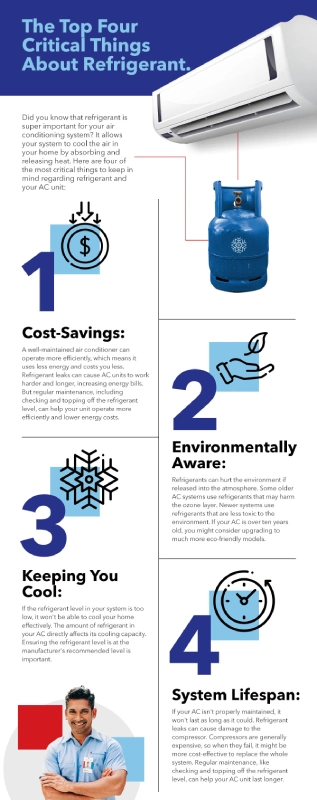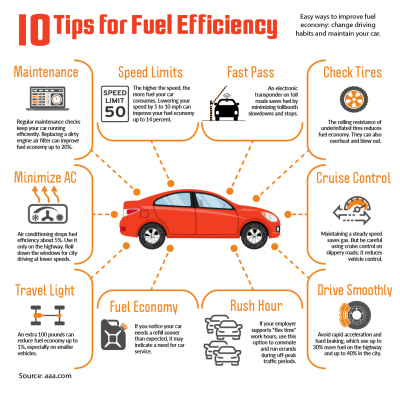An AC car works by using a refrigeration cycle to cool and dehumidify the air inside the vehicle. The system includes a compressor, condenser, expansion valve, and evaporator.
The compressor pressurizes the refrigerant gas, which then flows to the condenser where it releases heat. The liquid refrigerant then passes through the expansion valve, causing it to evaporate and cool down. This cold refrigerant then circulates through the evaporator, where it absorbs heat from the surrounding air.
The cool air is then blown into the vehicle’s interior through vents. By repeating this cycle, the car’s AC system effectively cools the air inside the cabin, providing a comfortable driving experience. An AC (air conditioning) system is a crucial component of any vehicle, ensuring a pleasant and comfortable driving experience even in the sweltering heat. By employing a refrigeration cycle, an AC car works tirelessly to cool and dehumidify the air circulating within the cabin. Understanding the inner workings of this system will not only enhance your appreciation for the technology but also help you take better care of your vehicle. In this comprehensive guide, we will delve into the key components and processes that allow your car’s AC system to maintain a cool and comfortable environment inside your vehicle, regardless of the outside temperature. So, let’s dive straight into it and unravel the fascinating mechanics of how an AC car works.

Credit: www.aireserv.com
The Basics Of An Ac Car
If you’ve ever experienced the relief of stepping into a cool car on a scorching summer day, you know the importance of a functioning air conditioning (AC) system in your vehicle. Understanding the basics of how an AC car works can help you appreciate this modern convenience even more.
How The Ac System Works
The AC system in your car works on a simple, yet essential principle – removing heat and moisture from the cabin air, thus creating a comfortable driving environment. Here’s a closer look at how this process takes place:
- Refrigerant Circulation: AC systems in cars use refrigerants, which are chemicals that can change from gas to liquid and back again at low temperatures. Refrigerant circulates through a closed-loop system consisting of various components.
- Compressor: The compressor plays a crucial role in the AC system. It is responsible for compressing the refrigerant gas into a high-pressure, high-temperature state.
- Condenser: After leaving the compressor, the high-pressure refrigerant is sent to the condenser, typically located in front of the vehicle’s radiator. The condenser acts as a heat exchanger, dissipating the heat from the refrigerant and causing it to transition from a gas to a liquid state.
- Expansion Valve: From the condenser, the now-liquid refrigerant moves into the expansion valve. This component regulates the flow of refrigerant and reduces its pressure, causing it to rapidly lose heat and turn back into a gas.
- Evaporator: At this stage, the refrigerant is in a cold, low-pressure gas state. It passes through the evaporator, which is typically located inside the dashboard. As the warm cabin air passes over the evaporator, heat is absorbed, cooling the air and removing moisture.
- Blower and Vents: Finally, a blower fan pushes the now-cooled air through the vents into the cabin, providing relief from the outside heat.
Key Components Of An Ac Car
To better appreciate how the AC system works, it’s essential to understand the key components that make it all possible:
| Component | Description |
|---|---|
| Compressor | The compressor is driven by the engine’s belt and pressurizes the refrigerant gas. |
| Condenser | The condenser is responsible for releasing heat from the refrigerant, causing it to change into a liquid state. |
| Expansion Valve | The expansion valve regulates the flow and pressure of the refrigerant, facilitating its transition back into a gas state. |
| Evaporator | The evaporator cools and dehumidifies the cabin air as the refrigerant absorbs heat from it. |
By understanding how these components work together, you can have a better grasp of how your AC car operates, helping you identify any potential issues and ensure optimal performance.
Maintaining Ac Efficiency
Maintaining AC efficiency is crucial for optimal performance. Regular maintenance, such as cleaning or changing filters, checking refrigerant levels, and inspecting for leaks, ensures that your car’s AC system works efficiently and effectively, providing cool air when you need it most.
Regular maintenance extends the lifespan of your AC system, saving you money in the long run.
Maintaining AC Efficiency Regular Maintenance Checks Regular maintenance checks are crucial to ensure the efficient functioning of your AC. These checks help identify any potential issues and prevent major breakdowns, saving you time and money in the long run. A qualified technician should assess your AC system annually or semi-annually, depending on your manufacturer’s recommendations. During these checks, the technician will inspect and clean the filters, check the refrigerant levels, examine the electrical connections, and assess the overall performance of your AC. By adhering to these maintenance checks, you can enjoy a consistently cool and comfortable living space. Optimizing AC Usage Optimizing the usage of your AC can significantly contribute to maintaining its efficiency. Firstly, make sure to close all doors and windows when running the AC to prevent cool air from escaping. Additionally, keep the blinds and curtains closed during the hottest part of the day to minimize heat gain inside your home. Setting the temperature at a moderate level, around 24-26 degrees Celsius (75-78 degrees Fahrenheit), can help strike the right balance between cooling and energy conservation. Furthermore, consider utilizing fans to improve air circulation within your space. This allows you to set the AC at a slightly higher temperature without compromising on comfort. Lastly, avoid placing heat-generating appliances near the thermostat as it can lead to inaccurate temperature readings. By regularly maintaining your AC and optimizing its usage, you can ensure its efficiency and prolong its lifespan. Remember, prevention is better than cure when it comes to AC systems.Improving Fuel Economy
Effects Of Ac On Fuel Consumption
Using the AC in your car can have a noticeable impact on fuel consumption. When the AC is running, the engine has to work harder, which can lead to increased fuel usage. Additionally, the AC system adds load to the engine, causing it to burn more fuel. It’s important to be mindful of the AC usage to maintain fuel efficiency and reduce unnecessary fuel consumption.
Tips For Fuel-efficient Ac Usage
- Keep windows closed while using the AC to reduce aerodynamic drag, improving fuel efficiency.
- Maintain the AC system to ensure optimal performance and reduce strain on the engine.
- Use the recirculation mode to cool the air faster and reduce the workload on the AC system.
- Consider using the fan-only setting when the outside temperature is bearable to reduce AC usage.
- Park in shaded areas to prevent the car’s interior from overheating, reducing the need for prolonged AC use upon re-entry.
Dealing With Common Issues
Identifying Ac Problems
- Strange noise coming from the AC unit
- Weak or inconsistent airflow
- Unpleasant odors when the AC is running
- AC not cooling the air as it should
Diy Troubleshooting Tips
- Check air filters for blockages
- Inspect the thermostat settings
- Ensure the outdoor unit is free from debris
- Look for any visible leaks in the AC system
Environment-friendly Practices
AC car works by using a compressor to circulate refrigerant, which absorbs heat from the air inside the car and releases it outside. This environmentally-friendly practice helps maintain a comfortable temperature while minimizing energy consumption and reducing greenhouse gas emissions.
Reducing Ac-related Emissions
AC systems contribute to environmental pollution, but can be made more sustainable through various methods:
- Regular maintenance to boost efficiency.
- Using environmentally-friendly refrigerants.
- Proper disposal of old refrigerants.
Eco-friendly Ac Alternatives
The concern for the environment has led to the development of green AC technologies:
- Electric AC systems powered by renewable energy sources.
- Hybrid AC systems that combine electricity and fuel.
- Thermal electric AC units that reduce reliance on traditional refrigerants.

Credit: www.cefcu.com

Credit: www.onehourairftworth.com
Frequently Asked Questions On How Ac Car Works
How Does Car Ac Control Work?
Car AC control works by using a combination of sensors and controls to regulate the temperature and airflow inside the vehicle. These controls monitor the cabin temperature, adjust the fan speed, and activate the compressor to cool the air. The system operates based on the driver’s input through the controls on the dashboard.
How Does A Car Get Air For Ac?
The car’s air conditioning system gets air through the front grille or the vents near the windshield. It pulls in outside air, which passes through the cabin air filter to remove contaminants before entering the AC system. This ensures clean and fresh air inside the car.
How Does Car Ac Work When Engine Is Off?
The car AC can work when the engine is off through a separate battery or a solar panel.
How Does An Air Conditioner Work Step By Step?
An air conditioner cools by absorbing heat and moisture from the air. Refrigerant circulates through coils, transferring heat outside. The cooled air is then blown into the room.
Conclusion
Understanding how your car’s AC system works can help you appreciate its complexity. Regular maintenance and checks ensure its smooth operation, keeping you comfortable during your drives. By grasping the inner workings, you can address issues promptly, improving performance and prolonging your AC’s lifespan.
Stay cool and informed on the road!